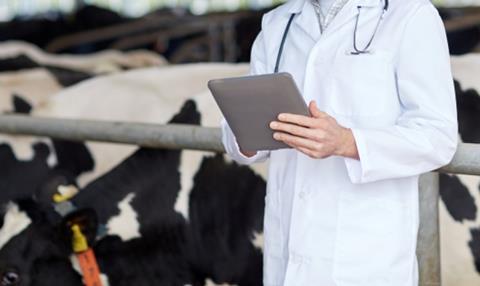The Association of Independent Meat Suppliers (AIMS) has responded to the findings of the Food Standards Agency’s ‘Our Food’ report, calling for a “radical reformation” in the food standards body’s approach to food safety.

In November 2023, the Food Standards Agency (FSA) and Food Standards Scotland (FSS) published their annual ‘Our Food’ report, which reviewed food standards across the UK for 2022.
The report found that overall, food standards remained stable in 2022, despite pressures like inflation, labour shortages and the war in Ukraine. However, it also identified shortages in key occupations needed to keep food safe, such as vets and food inspectors.
Workforce data in the report showed a 14% decline in food hygiene posts in local authorities in England, Wales and Northern Ireland over the last decade, with over 13% of available posts vacant. In Scotland, the number of food law officers (undertaking both food hygiene and food standards work) has fallen by just over a quarter (25.5%) compared to 2016/17.
The number of UK food standards officers has fallen by 45% compared to 10 years ago. The UK veterinary profession has experienced a 27% decline in people joining the profession between 2019 and 2022, creating significant challenges in securing enough OVs for the future.
The report highlights the risks that come from these falling numbers. A lack of OVs poses risks to animal health and welfare and the potential disruption of domestic food supply and the ability to export products of animal origin.
It also highlights how workforce pressure experienced by local authority teams risks hampering their capacity to conduct critical food safety and standards checks in food businesses.
Government industry collaboration requested
At the time, the FSA and FSS called on the Government, local authorities, professional bodies and industry to:
- Address the decline in local authority Trading Standards officers, Environmental Health and Food Law officers to ensure food standards are maintained;
- Tackle the shortage of Official Veterinarians (OVs) to protect animal health, welfare and trade and assure food hygiene is maintained;
- Share more and better-quality information across the food industry to help stop criminal gangs and tackle food crime that costs the UK up to £2 billion per year; and
- Introduce import controls on food imported from the EU to help reduce the risk of unsafe food entering the UK from the EU.
Commenting on the report’s publication, Professor Susan Jebb, chair of the FSA, said: “It takes time to recruit and develop these skills and we worry that without specific action to boost the workforce, specifically to recruit more official veterinarians and local authority inspectors, it will not be possible to maintain these high standards in the future.
“Failure to recruit and train professionals to key posts can have reverberations for many years to come. We ask Governments across the UK, and others, to work with us to address these matters in the coming year so that people in the UK can continue to have food they can trust, and the strong reputation of British food abroad is maintained.”
Abandon current methods, says AIMS

In response to the findings of the FSA and FSS’ report, trade body the Association of Independent Meat Suppliers (AIMS) said that it is “time to confront a longstanding issue that has been consistently overlooked.”
Dr Jason Aldiss, head of engagement at AIMS, said that the latest data from the FSA revealed “a worrying trend,” that local authorities are significantly behind in conducting the necessary interventions at lower-risk establishments.
He added: “This lapse has resulted in numerous food outlets in England, Wales, and Northern Ireland escaping scrutiny for extended periods. Meanwhile, high-risk premises remain insufficiently inspected.
“The meat processing sector, one of the lowest risk points in the food chain, is subjected to excessive oversight by trained personnel, leading to unnecessary financial burdens and operational challenges.”
Mr Aldiss explained that AIMS is proposing “a radical reformulation” in the FSA's approach to food safety, adding that the current system needs an overhaul.
He continued: “Our industry is not against regulation; on the contrary, we advocate for smart, science-based policies that prioritise actual risk points within the food chain. It is high time the FSA abandons its methods and embraces innovative solutions.”
Alternative solution
To address this issue, last year, AIMS published a technological solution that the trade body believes, if adopted, could revolutionise how food safety is managed. The trade body said that the solution offers "a more efficient, accurate, and cost-effective method of ensuring compliance and safety."
AIMS has urged the FSA to engage with it in deploying its new solution. Dr Aldiss added: “It is our collective responsibility to ensure the safety and well-being of consumers, and this can only be achieved through a collaborative, science-driven approach to food safety regulation.
“We stand ready to work with the FSA and local authorities to bring about a new era in food safety oversight, one that is based on risk assessment, technological innovation, and a genuine commitment to public health.”
This story was originally published on a previous version of the Meat Management website and so there may be some missing images and formatting issues.















